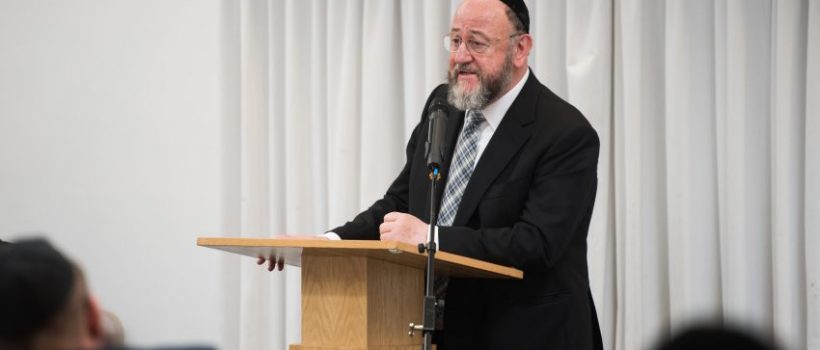The Chief Rabbi’s Pesach Message 5777

Pesach is our festival of questions.
It is no exaggeration to say that questions are amongst the most potent tools at our disposal for improving ourselves, for educating others and for shaping and changing our world for the better.
Our tradition considers it a sacred task to ask, probe and explore. We take questions seriously. To question is not necessarily to reject or to undermine; rather, it is seen by our intensely discursive tradition as a way of refining our understanding of the truth, and of the part we must play in the universe.
Asking the right question at the right time can provide an entirely new perspective on life, it can expand our knowledge and open up whole new vistas of understanding. But, like any truly powerful force in this world, questions can also be used to destroy. They can seed doubt and create confusion and fear.
That is the reason why, during the Seder, when questions are so central, we have a carefully structured environment which provokes constructive questions and encourages thoughtful answers.
A sincere question is a request for deeper understanding and requires a certain degree of humility on the part of the questioner. Indeed, that is the reason why questions are such an important part of Jewish tradition. We are taught in Pirkei Avot, that the classic answer to the question ‘who is wise?’ is: ‘one who learns from every person’, and the term that we use to describe even our most accomplished teacher is talmid chacham – ‘a wise student’.
It is this humility and sincerity which we find in the question of the wise son, “What is the meaning of the laws and traditions God has commanded?” From his effort to seek meaning from those around him we discover the respect he holds for them and his readiness to learn from them.
Compare his approach to that of the wicked son, who asks, “What does this ritual mean to you?” He seeks no meaning for himself. On the contrary, his question is designed to undermine and to be scornful of what those around him believe.
It is perhaps inevitable, particularly when we hold a strong view, that we will feel less inclined to hear the thoughts of others. And yet, it is essential that we never lose the humility to learn. The point at which we are quicker to undermine the views of others than we are to seek value in them is the point at which our contribution to the world ceases to be a positive one.
Over the course of the last year, our world has become more polarised than at any time in recent memory. We have become steadily worse, it seems, at disagreeing respectfully and at keeping an open mind. This Pesach, may we all be blessed with the humility, not just to ask the right questions, but also to be prepared to learn from the answers.
Valerie and I wish you a chag kasher v’sameach.
April 2017 • Nissan 5777


